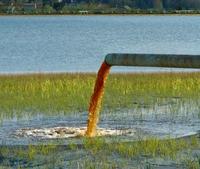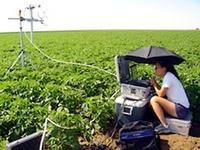-
U.S. should re-evaluate definition of skilled workers in immigration policy: experts
A new study suggests the United States should re-evaluate its definition of skilled workers to include informal skills of migrant workers. The study identifies lifelong human capital — knowledge and technical and social skills — acquired and transferred throughout these migrants’ careers. The researchers discovered that skills among these migrants not only include basic education and English, but also technical and social skills and competencies acquired informally on and off the job throughout their lives — skills that are used in construction, domestic, retail and hospitality work.
-
-
Congress may modify the amount, manner by which Project BioShield procurements are funded
In 2004, Congress passed the Project BioShield Act to provide the federal government with new authorities related to the development, procurement, and use of medical countermeasures against chemical, biological, radiological, and nuclear (CBRN) terrorism agents. Among other things, the authority allows the government to guarantee a market for CBRN medical countermeasures. Under this provision, the secretary of Health and Human Services (HHS) may obligate funds to purchase countermeasures that still need up to ten more years of development. Since 2004, HHS has obligated approximately $3.309 billion to guarantee a government market for countermeasures against anthrax, smallpox, botulism, radiation, and nerve agents. Another provision established a process through which the HHS secretary may temporarily allow the emergency use of countermeasures which lack Food and Drug Administration (FDA) approval. The 113th Congress may also consider modifying the amount and manner by which it funds Project BioShield procurements.
-
-
As Baby Boomers retire, nuclear industry faces manpower shortages
Many nuclear power plants in the United States are facing an employment and training crisis as their largely Baby Boomer-generation (1946-64) workforce begins to retire. The nuclear industry is making an effort to usher in new and better-trained workers — many from university programs and former military service — to fill in the gaps created by retirement-aged engineers.
-
-
Details of oil shipments by rail are not security sensitive and should be released: DOT

The boom in U.S. oil shipments by rail is largely due to the growing production of shale oil from the Bakken fields in North Dakota and Montana, but also due to the slow construction of new oil pipelines. U.S. freight railroads are estimated to have carried 434,000 carloads of crude oil in 2013, compared to 9,500 carloads in 2008. In 2014, 650,000 carloads of crude oil are expected to be carried. So far U.S. crude oil shipments by rail have reached a record 110,000 carloads in the first quarter of 2014. Transportation Secretary Anthony Foxx issued an order in May for railroads to provide states with details on routing and oil-train volumes. Last week, U.S. Department of Transportationofficials affirmed that details about volatile oil train shipments are not sensitive security information, thereby allowing states to release such information to the public.
-
-
Researchers develop better methods to detect E. coli
Researchers have developed a method to detect E. coli before it can potentially contaminate the food supply. The newly developed test is a molecular assay, or polymerase chain reaction, that detects bacteria based on genetic sequences, which are the bacteria’s “fingerprints.” The new approach to E. coli detection would benefit the beef industry by preventing costly recalls, and it would benefit consumers by ensuring the safety of the beef supply.
-
-
ISIS insurgents take over Iraq’s largest refinery, continue advance toward Baghdad
Earlier this morning (Wednesday) ISIS Islamic militants took over Iraq’s biggest oil refinery, located near the town of Baiji, 130 miles north of Baghdad. The fall of the refinery is a major blow to the already-reeling government of Nouri al-Maliki. The refinery provides about 40 percent of Iraq’s refined oil needs, and if the supplies dry up, the Iraqi economy would be paralyzed within a few days, and Iraqi citizens would be without power or gas for their cars. As was the case since the ISIS campaign began late last week, the Iraqi military and security forces put up only a token resistance, with most of their units melting away and leaving their arms and equipment behind without even engaging the militants. Iraq is the second largest oil producer in OPEC.
-
-
Security flaw: Researchers find thousands of secret keys in Android apps
Researchers have discovered a crucial security problem in Google Play, the official Android app store where millions of users of Android, the most popular mobile platform, get their apps. “Google Play has more than one million apps and over 50 billion app downloads, but no one reviews what gets put into Google Play — anyone can get a $25 account and upload whatever they want. Very little is known about what’s there at an aggregate level,” says one of the researchers.
-
-
Texas limits release of information about toxic chemicals storage in the state
Shortly after the 2013 chemical explosion at a fertilizer plant in West, Texas, the Texas Department of State Health Services(DSHS) releasedto several media outlets its list of businesses across the state that store or handle large supplies of chemicals, including ammonium nitrate, the chemical which ignited the explosion. More recently, the department has been working to limit the release of its database of chemical inventories from the public.
-
-
Chemical pollution of European waters is worse than anticipated

Until now environmental authorities and parts of the scientific community have considered toxic chemicals to be rather a local problem affecting only a few bodies of water. A new study, however, reveals for the first time on a large scale the ecological risks emanating from chemical toxicants for several thousands of European aquatic systems. Chemical toxicity represents an ecological threat to almost half of all European bodies of water, and in approximately 15 percent of cases, the biota in freshwater systems may even be subject to acute mortality.
-
-
New approach to balancing security and privacy
Online identification and authentication keeps transactions secure on the Internet, but this also has implications for your privacy. Disclosing more personal information than needed online when, say, you log in to your bank Web site may simplify the bank’s security at the cost of your privacy. Now, thanks to research by the EU-funded project Attribute-based Credentials for Trust, or ABC4Trust, there is a new approach that keeps systems secure and protects your identity.
-
-
Skilled immigrants to be granted “express entry” to Canada to meet labor market needs
Canada’s immigration minister Chris Alexander has announced a new immigration system, set to launch in 2015, allowing qualified skilled immigrants to enter the country as permanent residents as a way to fill open jobs where there are no available Canadian workers. The immigration ministry has promised to process applications within six months or less.
-
-
Economic relationships, not terrorism fears, drive visa decisions: study
Despite heightened focus on preventing global terrorism since the 9/11 attacks in 2001, researchers have found that the economic relationship between two countries is the most significant factor in determining the acceptance or rejection rate of visas. “Surprisingly what I find is the global reputation a state garners as a prominent origin of terrorism has a very minute impact when you take into account trade interdependence,” the study’s author says.
-
-
Carbon-cutting regulations may boost prospects of nuclear power plants

In a report issued last Thursday, Standard & Poor’s Ratings Services (S&P) predicted that new nuclear plant construction could benefit from the Environmental Protection Agency’s (EPA) recent carbon-cutting guidelines for current natural gas power plants.
-
-
Debate continues over controversial lawsuit-killing Louisiana oil bill
Governor Bobby Jindal (R-Louisiana) is facing a difficult decision over whether or not to veto a measure which would kill a contentious lawsuit filed by the Southeast Louisiana Flood Protection Authority-East (SLFPA-E) against ninety-seven different oil and gas companies regarding long-term environmental damage claims, including those of the 2010 Deepwater Horizon explosion.
-
-
Reducing use of nitrogen-based fertilizers helps combat climate change

Nitrogen-based fertilizers spur greenhouse gas emissions by stimulating microbes in the soil to produce more nitrous oxide. Nitrous oxide is the third most important greenhouse gas, behind only carbon dioxide and methane, and also destroys stratospheric ozone. Agriculture accounts for around 80 percent of human-caused nitrous oxide emissions worldwide, which have increased substantially in recent years, primarily due to increased nitrogen fertilizer use. Scientists help farmers around the globe apply more-precise amounts of nitrogen-based fertilizer to help combat climate change.
-
More headlines
The long view
Ransomware Attacks: Death Threats, Endangered Patients and Millions of Dollars in Damages
A ransomware attack on Change Healthcare, a company that processes 15 billion health care transactions annually and deals with 1 in 3 patient records in the United States, is continuing to cause massive disruptions nearly three weeks later. The incident, which started on February 21, has been called the “most significant cyberattack on the U.S. health care system” by the American Hospital Association. It is just the latest example of an increasing trend.
Chinese Government Hackers Targeted Critics of China, U.S. Businesses and Politicians
An indictment was unsealed Monday charging seven nationals of the People’s Republic of China (PRC) with conspiracy to commit computer intrusions and conspiracy to commit wire fraud for their involvement in a PRC-based hacking group that spent approximately 14 years targeting U.S. and foreign critics, businesses, and political officials in furtherance of the PRC’s economic espionage and foreign intelligence objectives.
European Arms Imports Nearly Double, U.S. and French Exports Rise, and Russian Exports Fall Sharply
States in Europe almost doubled their imports of major arms (+94 per cent) between 2014–18 and 2019–23. The United States increased its arms exports by 17 per cent between 2014–18 and 2019–23, while Russia’s arms exports halved. Russia was for the first time the third largest arms exporter, falling just behind France.
LNG Exports Have Had No Impact on Domestic Energy Costs: Analysis
U.S. liquified natural gas (LNG) exports have not had any sustained and significant direct impact on U.S. natural gas prices and have, in fact, spurred production and productivity gains, which contribute to downward pressure on domestic prices.
